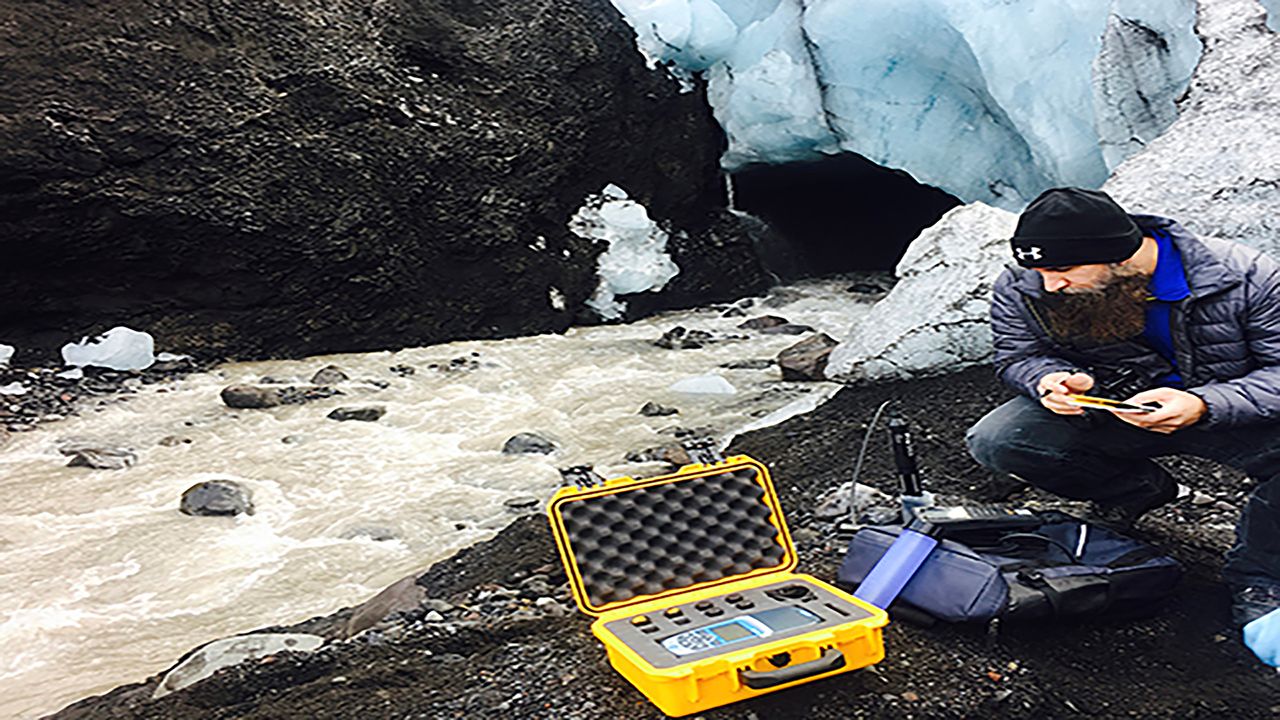BOWLING GREEN, Ky. - A WKU professor is taking his knowledge to the next level.
Dr. Jason Polk, Associate Professor of Geography and Geology and Director of WKU Center for Human GeoEnvironmental Studies (CHNGES), will join a team of international scientists as Expert Reviewer for the Intergovernmental Panel on Climate Change (IPCC) global report. AR6: The Physical Basis will detail the current status of climate change and its implications. Dr. Polk’s contribution will focus on chapter five, Global Carbon and other Biogeochemical Cycles and Feedbacks.
The IPCC, established in 1988, is housed under the UN and represents over 190 countries as a leading authority on climate change data assessment and advising. Its report will be released to scientists and policymakers.
Dr. Polk was selected based on his research expertise of climate conditions and his challenging recent work with WKU students on carbon fluctuations previously understudied in extreme environments like melting glaciers in Iceland and Mammoth Cave National Park groundwater systems. Dr. Polk and his students collaborated internationally to complete this research that contributes to the scientific basis on which the IPCC report is developed.
Dr. Fred Siewers, Chair of the Department of Geography and Geology, explained, “The research being conducted at WKU in the Geosciences and through CHNGES provides applied student engagement opportunities that contribute to the datasets and future policy actions that help inform perceptions and behaviors affecting the entire world on topics like climate change. We welcome all students interested in these types of experiences.”
During his work on the report, Dr. Polk will be a member of the Past Global Changes (PAGES) Early Career Network (ECN), which is associated with other prominent international organizations that study global change and educate people about climate and ecosystem issues. Dr. Polk’s review will objectively assess the outlined science and ensure a balanced and accurate representation of scientific views.
“It is both an honor and a career highlight to be able to contribute my expertise to reviewing the latest IPCC report,” Dr. Polk said. “In working with my students, I always encourage them to conduct their research with the highest level of objectivity and data integrity, because one never knows when his or her results might be used for something as impactful and important as a report like this. I have an even deeper appreciation for the rigorous writing and review process that the IPCC scientific reports undergo through my experience in this process and am grateful for the positive experience in working with fellow scientists to ensure we are using the best available scientific data when making decisions to address issues related to a changing climate.”
The IPCC AR6 report is scheduled for release in April 2021 and will be continuously reviewed and edited.



